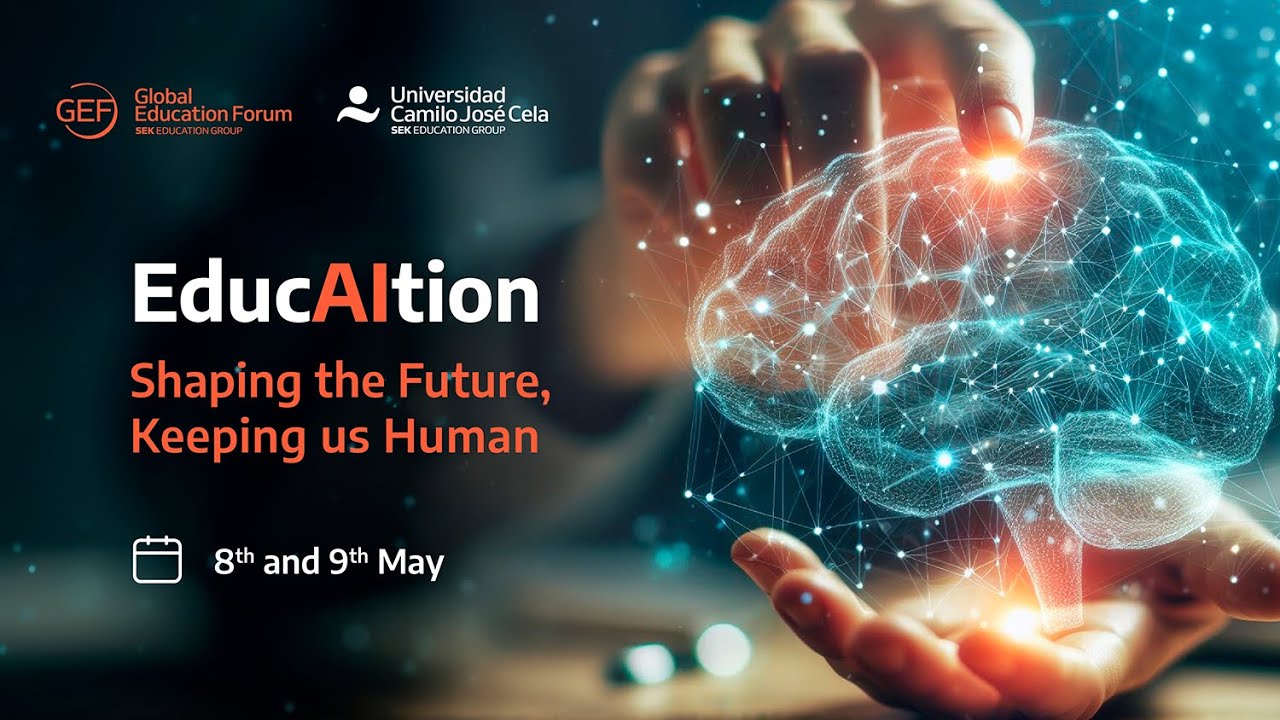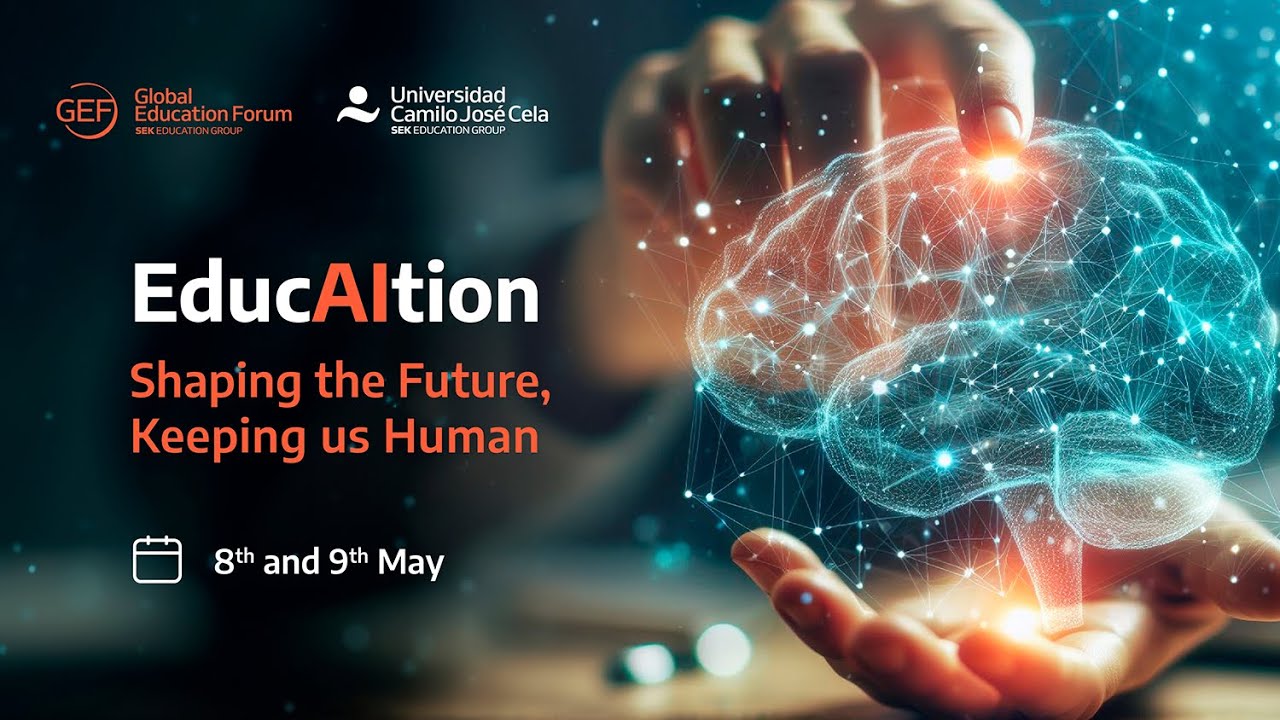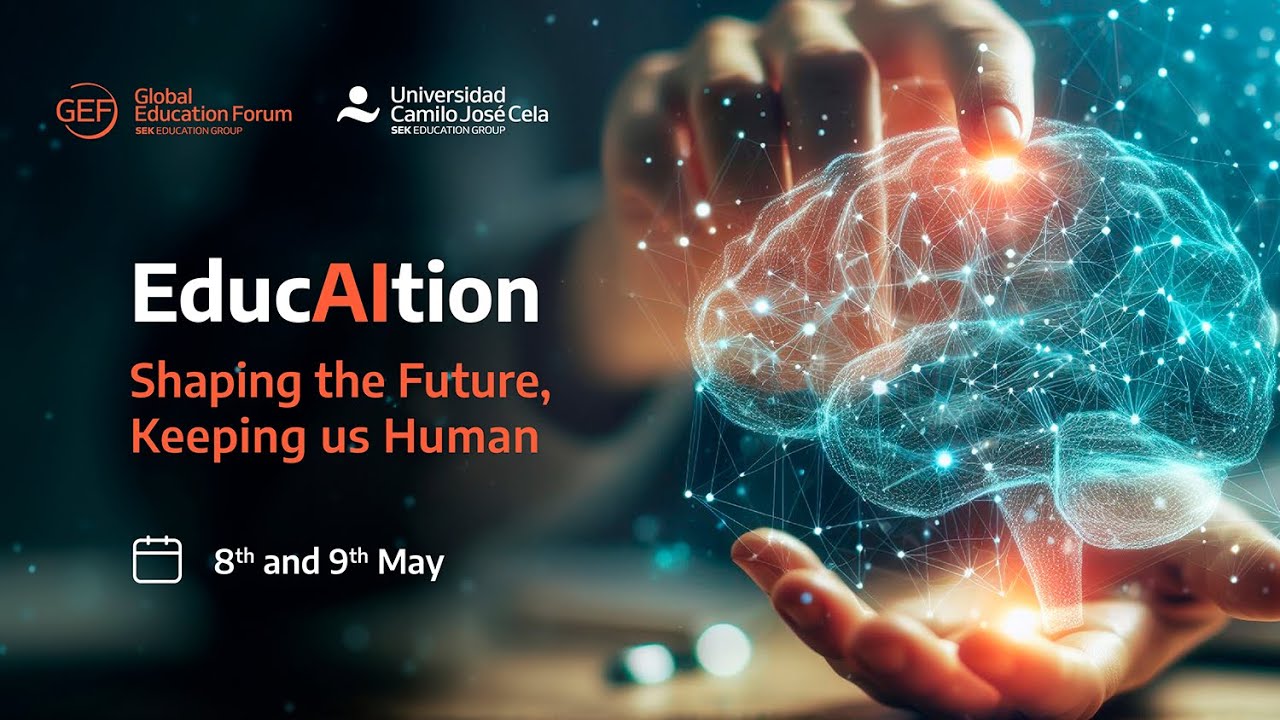GEF Madrid 2024: AI, Art, and Humanities
Summary
TLDRIn this roundtable discussion, the CEO of L Education, Ftis Lope, leads a conversation on the intersection of artificial intelligence, art, and humanity. Panelists explore the role of humanities in shaping AI ethics, the impact of AI on art and culture, and the challenges of artist identity in a digital age. The discussion underscores the importance of collaboration between artists, humanists, and AI experts to navigate the ethical implications and societal changes brought by AI advancements.
Takeaways
- 🌟 The panel discussion emphasizes the intersection of artificial intelligence, art, and humanity, highlighting the importance of humanistic perspectives in shaping our understanding of AI.
- 🤖 AI's integration into digital interactions presents ethical challenges such as privacy and algorithmic bias, which need to be addressed with a critical understanding from the humanities.
- 🎨 The role of humanities is pivotal in providing a critical understanding of AI, ensuring that technological advances are backed by strong humanist perspectives from various disciplines like sociology and philosophy.
- 🔍 There is a noted division between AI developers and humanists, with the former often overlooking ethical implications and philosophical questions that the latter grapples with.
- 💡 The humanities should bridge the gap with AI experts to educate them on important ethical and philosophical issues, fostering a more holistic approach to AI development.
- 🖌️ AI's impact on art is transformative, allowing creators to produce more and explore new creative avenues, but it also raises concerns about the preservation of an artist's unique identity.
- 🖋️ The discussion of generative AI, such as chatbots, has brought ethics and the essence of being human to the forefront, which were not as prevalent during the early days of the internet.
- 🎭 Artistic identity is not solely based on style but on an artist's unique worldview and how it is expressed in their art, which AI-generated art may risk diluting.
- 🔑 Copyright issues are becoming more complex with AI, as it introduces the potential for unknowing infringement and the need for a reevaluation of 'fair use' in the context of AI-generated content.
- 🛠️ The ethical implications of AI in art and humanities also extend to other professions, like translators and voice actors, whose work can be replicated by AI, leading to job displacement.
- 🌐 The integration of AI into society is likened to crossing a bridge while building it, indicating that the full impact and societal changes are yet to be fully understood or realized.
Q & A
What is the main topic of the round table discussion led by Ftis Lope?
-The main topic of the round table discussion is the intersection of artificial intelligence, art, and humanity, focusing on how AI is integrated into every aspect of digital interaction and the challenges and opportunities it poses to being human.
What is the role of humanities in shaping a critical understanding of artificial intelligence according to the speakers?
-The role of humanities is to provide a strong humanistic perspective on the field of sociology and philosophy, ensuring that technological advances are balanced with ethical considerations and an understanding of the human condition.
What ethical questions does the integration of AI pose for humanity?
-The integration of AI poses ethical questions about privacy, algorithmic bias, and the philosophical implications of AI's impact on what it means to be human.
How does AI influence art and art history according to the AI researcher's perspective?
-AI can influence art and art history by interacting with people in humanities and art schools, providing new tools for creativity and offering insights into the creative process by analyzing creative projects.
What is the concern regarding the division between AI developers and humanities scholars?
-The concern is that AI developers often do not consider the ethical implications or philosophical questions that humanities scholars study, leading to a lack of awareness about the potential consequences of AI development.
What is the role of generative AI, like chatbots, in the context of language and ethics?
-Generative AI, such as chatbots, has sparked interest in ethics as they touch upon a very human aspect—language. As these AI systems mimic human conversation, they raise questions about authenticity, identity, and ethical use.
How can AI be seen as a tool for creativity in art production?
-AI can be seen as a tool for creativity by providing artists with new ways to generate ideas, produce art at scale, and explore new artistic directions, thus enhancing their creative process.
What is the potential impact of AI on the identity of artists?
-AI may affect the identity of artists by potentially homogenizing their work, making it difficult to distinguish one artist's unique perspective and style from another when AI-generated art becomes prevalent.
What are the opportunities and limitations of collaboration between artists, humanists, and AI experts?
-Opportunities include the creation of innovative art forms and the enhancement of the creative process. Limitations involve the potential loss of artistic identity and the ethical challenges of AI-generated content.
What is the ethical challenge posed by AI in terms of copyright and the use of existing works?
-AI systems can generate new content based on existing works, which may infringe on copyright laws and raise questions about the fair use and transformation of original artistic works.
How can AI be integrated ethically into art and humanities?
-AI can be integrated ethically by ensuring that it respects the originality and identity of artists, by having clear guidelines on the use of copyrighted material, and by fostering a dialogue between AI developers, artists, and humanities scholars.
Outlines

此内容仅限付费用户访问。 请升级后访问。
立即升级Mindmap

此内容仅限付费用户访问。 请升级后访问。
立即升级Keywords

此内容仅限付费用户访问。 请升级后访问。
立即升级Highlights

此内容仅限付费用户访问。 请升级后访问。
立即升级Transcripts

此内容仅限付费用户访问。 请升级后访问。
立即升级浏览更多相关视频

GEF Madrid 2024: Academic-Corporate Collaboration in AI

GEF Madrid 2024: AI: Reshaping Academic Research

GEF Madrid 2024: AI's role in Student Wellbeing

Your view on AI and creativity will never be the same

GEF Madrid 2024: Navigating AI Legal Frontiers

Como a Cogna planeja dominar o setor educacional com IA
5.0 / 5 (0 votes)
